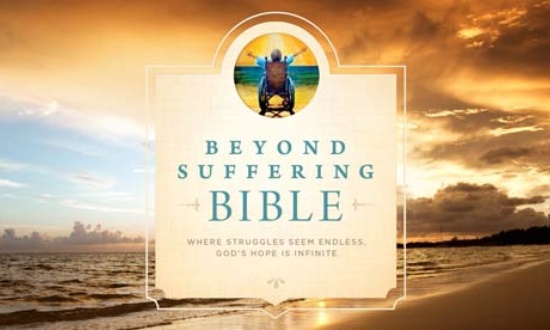People need to feel loved. A hurting child needs to feel his father’s arms around him. When the father is away, he may leave written words of love, as God has in his Word. But he may also call on the child’s older brothers and sisters to express his love to his child.
To ignore someone’s pain is to add to that pain. Instead of fearing we’ll say the wrong thing, we should reach out to hurting people. Many times it’s better just to put our arms around someone and cry with them; people almost always appreciate it when you acknowledge their loss. Yet so long as your heart is right, saying something is nearly always better than saying nothing.
There is a time for silence, to just sit and listen and weep with those who weep. We often condemn Job’s friends, but we should remember that they started well. When they saw his misery, they wept aloud. And then for seven days and nights they sat with him, in silence, wordlessly expressing their concern for him (see Job 2:11–13).
If we don’t know what to say to a friend in crisis, remember that so long as Job’s friends remained quiet, they helped him bear his grief. Later, when they began giving unsolicited advice and rebuke, Job not only had to deal with his suffering, but with his friends’ smug responses, which added to his suffering.
When someone in pain expresses raw emotions, we shouldn’t scold them. Friends let friends share honest feelings. When the premature and misguided correction of Job’s friends hurt Job, they didn’t have sense enough to say, “I’m sorry,” and then shut up. They went right on hurting him. So Job said to them, “Miserable comforters are you all!” (16:2).
Darrell Scott told me that after his daughter Rachel was murdered at Columbine, people often quoted Romans 8:28 to him. He wasn’t ready to hear it. How sad that such a powerful verse, cited carelessly or prematurely, becomes a source of pain when it should offer great comfort. Think of God’s truths like tools. Don’t use a hammer when you need a wrench. And don’t use either when you need to give someone a hug, a blanket, or a meal—or just weep with them.
On the other hand, Nancy Guthrie says sufferers should extend grace to the insensitive comforters who hurt them. The last thing a grieving person needs is to take on the burden of resentment. “Be kind and compassionate to one another, forgiving each other, just as in Christ God forgave you” (Ephesians 4:32).
Don’t disappear or avoid your friend who needs you now more than ever. My mother died in 1981, when I was a young pastor. Ten years earlier, not long after I’d become a Christian, I had the joy of leading Mom to Christ. We grew together, reading and discussing Scripture and great books, praying and laughing together, and later fussing over my children, her granddaughters, Karina and Angela. When she died, I mourned my loss, my wife’s, and above all my children’s. I felt like part of me had been taken away.
As I walked into church that first Sunday after Mom’s death, I felt as though my presence parted the Red Sea. Instead of greeting me warmly in their usual way, people stepped aside. I knew they did it because they didn’t know what to say, yet it magnified my loneliness.
Most of us have seen friends disappear when we most needed them—and without meaning to, we’ve done the same to others. If you find yourself not wanting to make a phone call when you hear about someone’s crisis, remind yourself that any expression of concern is better than none. When people lose a loved one, they don’t want to “move on” as if the person never existed. Even if doing so makes them cry, usually they want and need to talk about them.
“Rejoice with those who rejoice; mourn with those who mourn” (Romans 12:15). We tend to do better at rejoicing. Because we don’t like to feel pain, we tend to ignore others’ pain. But they need us to become the arms of Christ to them.
If we’re not there for them, who will be?
(Excerpted from my book If God Is Good.)




